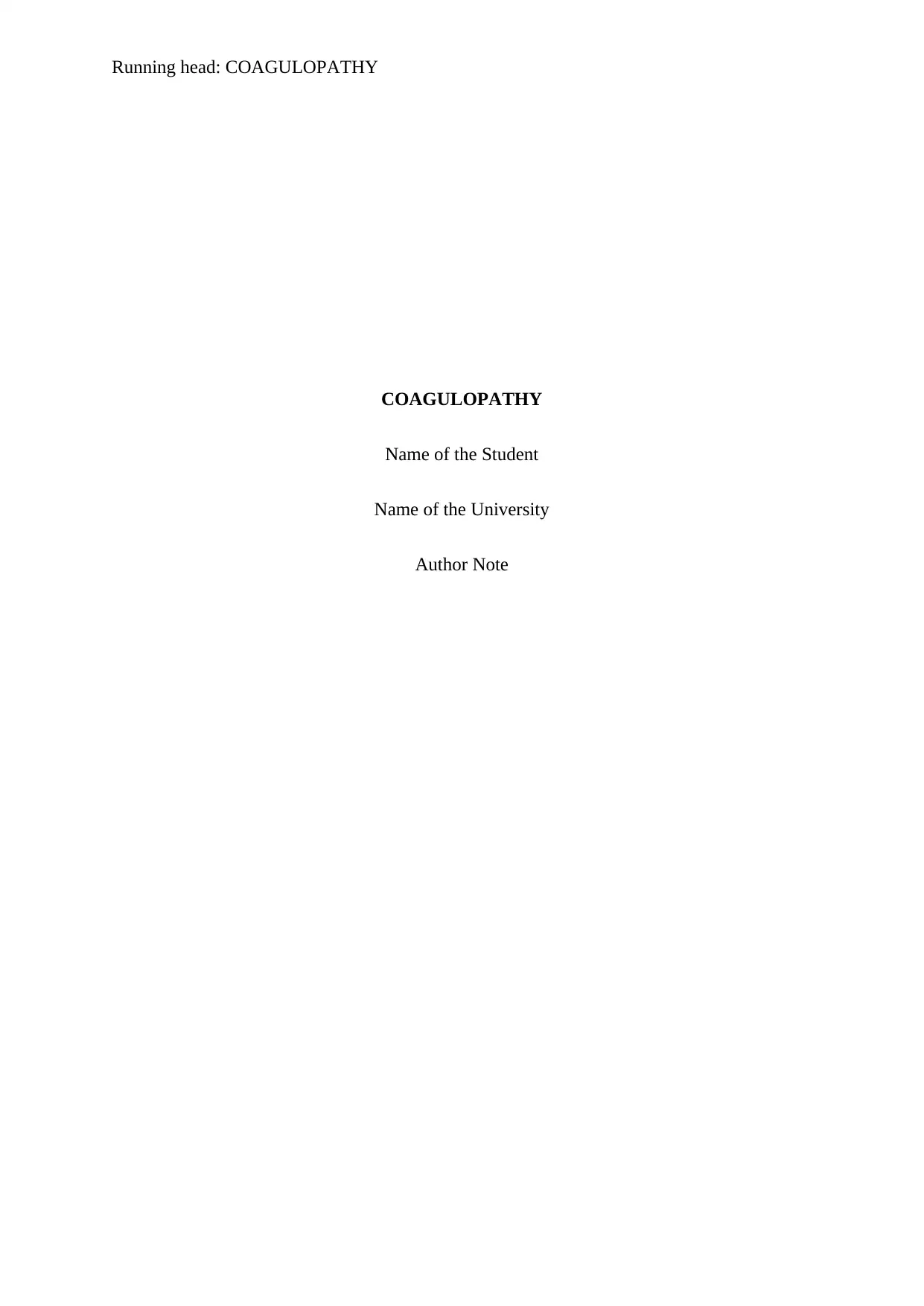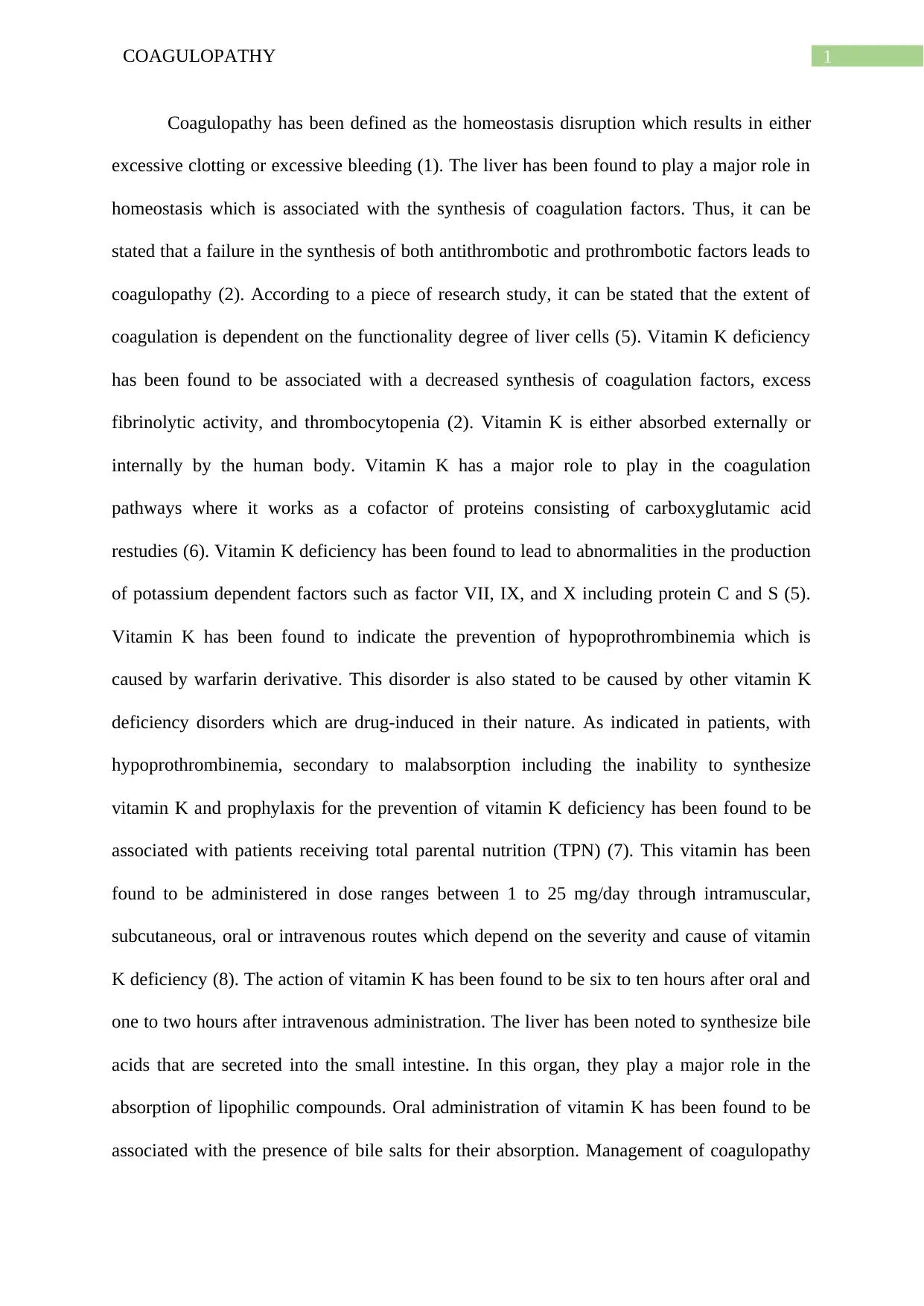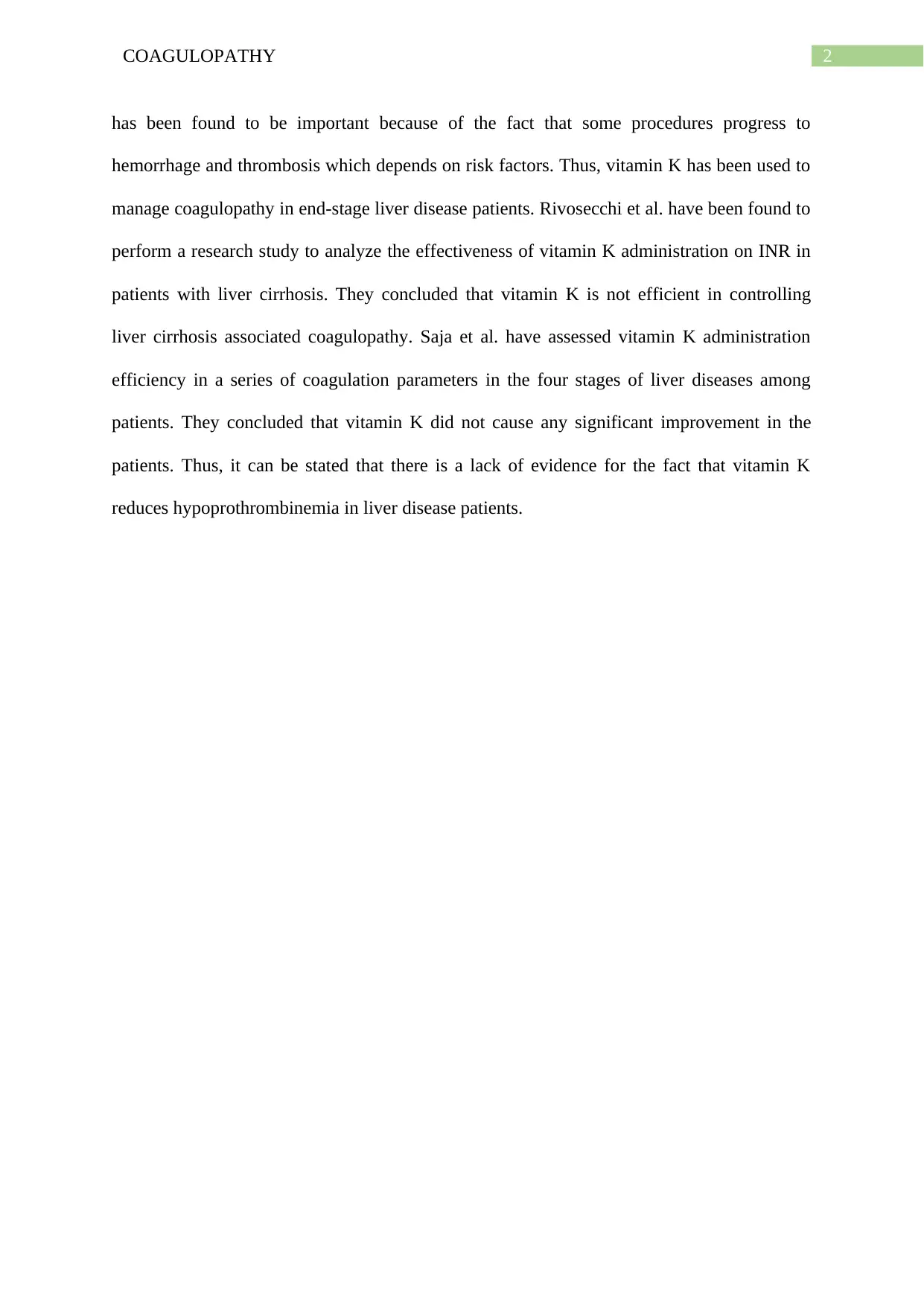Vitamin K's Effectiveness in Coagulopathy Management for Liver Disease
VerifiedAdded on 2022/08/23
|3
|578
|17
Report
AI Summary
This report discusses coagulopathy, a condition characterized by disrupted hemostasis leading to excessive bleeding or clotting, often linked to liver dysfunction and vitamin K deficiency. The liver's role in synthesizing coagulation factors is highlighted, and the report explores how liver disease can lead to coagulopathy. Vitamin K's importance in coagulation pathways and the consequences of its deficiency, such as hypoprothrombinemia, are examined. While vitamin K is typically used to manage coagulopathy, research studies suggest its limited effectiveness in treating liver cirrhosis-associated coagulopathy, with some studies indicating it does not significantly improve coagulation parameters in patients with liver disease. The report concludes by noting the lack of strong evidence supporting vitamin K's ability to reduce hypoprothrombinemia in liver disease patients.
1 out of 3









![[object Object]](/_next/static/media/star-bottom.7253800d.svg)